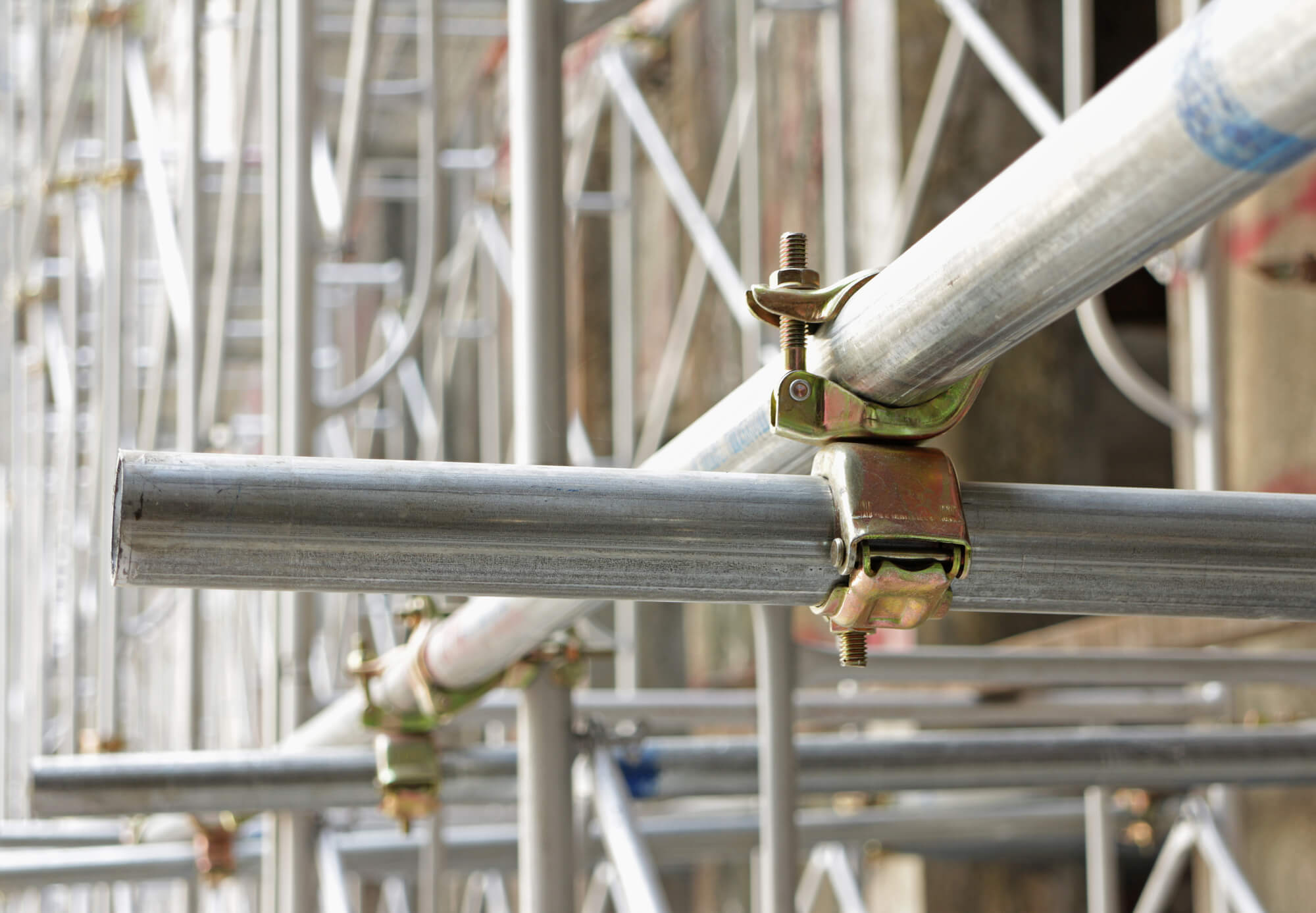The main difference is that ledgers are the horizontal tubes that connect between standards whereas transoms are placed next to the standards and they hold them in place and ensure that the boards have adequate support. Both are crucial in ensuring the sturdiness and stability of the scaffold structure. Here are more differences between the two terms as used in scaffolding.

What is Ledger
The word ledger in scaffolding refers to a horizontal beam supported on standards that ensures the scaffold structure is stable and the weight is evenly distributed. They are helpful when it comes to maintaining the correct bay width and they can also be used as a guard rail or handrail support. An unstable scaffold is dangerous but the ledger ensures that the workers get a stable and sturdy working platform.
What is Transom
A Scaffold transom is a horizontal tube placed across ledger to provide stability or strength to the structure. You can get transoms that are made from either steel or aluminium. They can be found in different lengths depending on the type or size of your scaffolding. To ensure the stability of the scaffolding structure, the transoms should be levelled and spaced evenly.

Where is the transom placed on scaffolding
In scaffolding, the transom is located horizontally across the ledgers and next to the standards. They are placed at a right angle to the face of the building. Scaffold boards are placed on the transoms to ensure that there’s a safe working platform. The transoms are joined to each other using couplers and to the ledgers using bolts or clamps. You should ensure that the transoms are safely fitted to avoid any accidents or an unstable scaffold structure.
Transom vs ledger
Both the transom and ledger are scaffolding components that are crucial when it comes to ensuring the stability and strength of the structure. Some of the distinctive differences between the two include the following:
A ledger is a horizontal scaffolding component that’s fixed at a right angle to the standards for adequate support to the scaffold structure whereas the transom is a horizontal tube placed on the ledgers to create a sturdy working platform.
Ledgers are horizontal components that run between standards and are installed parallel to the building while transoms are fixed on the ledgers at a right angle.
Transoms ensure that the working platform is stable enough to support the weight whereas ledgers support the transoms and provide horizontal bracing for the scaffold structure.
Ledgers are connected to the standards using couplers while transoms are connected to ledgers using bolts or clamps.
The length of the ledger corresponds to the distance between two standards, whereas the transom length determines the width of the working platform.

Comparison table: Transom vs. ledger
The table below shows the difference between a transom and ledger as used in scaffolding:
| Transom | Ledger |
|---|---|
| Horizontal tubes fixed on ledgers | Horizontal components that run between standards |
| Fixed on ledgers at a right angle | Installed parallel to the building |
| Ensures there’s enough support for a sturdy working platform | Supports the transoms while providing horizontal bracing for the scaffolding |
| The length determines the width of the working platform | Length corresponds with the distance between two standards |
Knowing how to distinguish between a transom and a ledger is crucial when it comes to ensuring that all the components have been fixed properly. You should ensure that everything is installed by a scaffolding professional considering both components are crucial in ensuring the strength and stability of the scaffolding structure